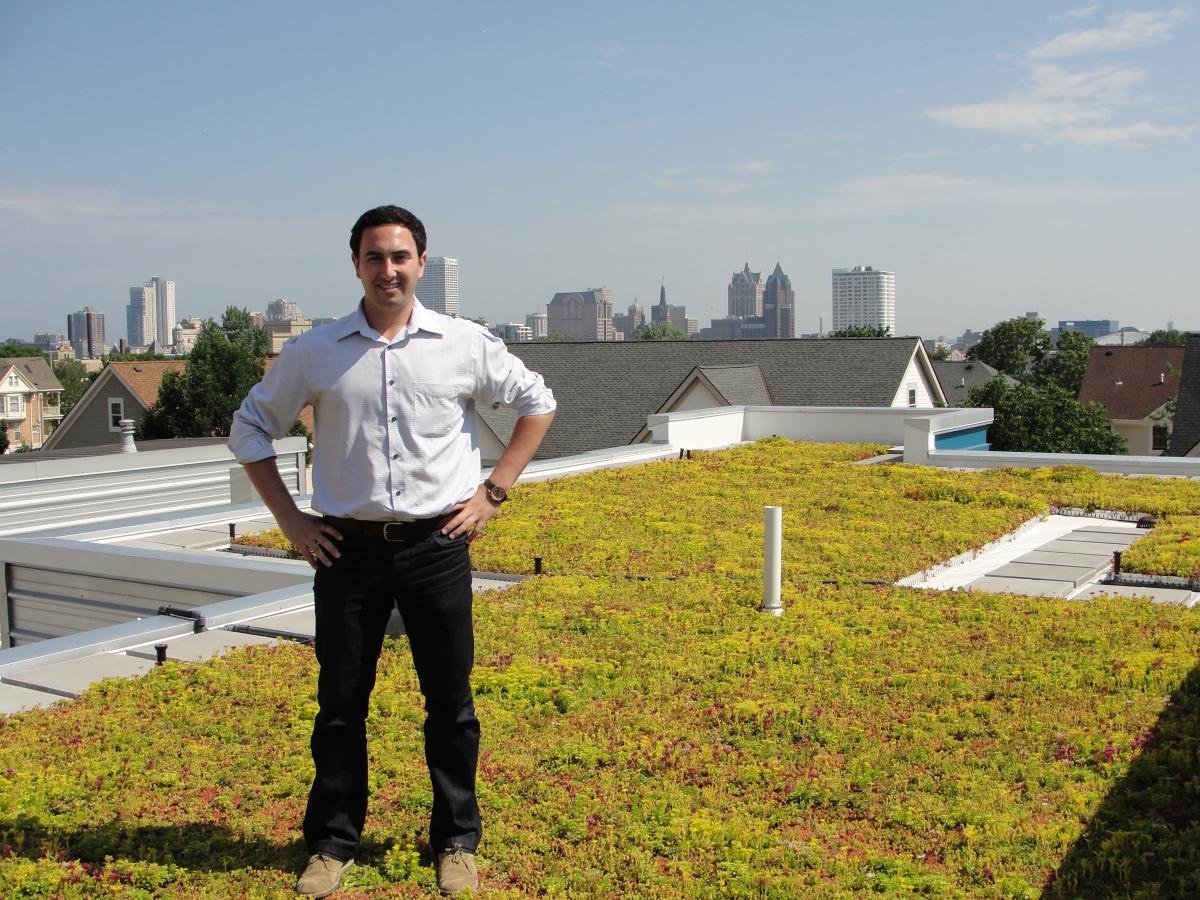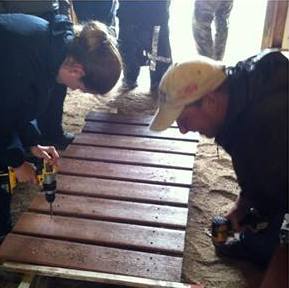EDF Climate Corps fellow | August 9, 2013
What do Tom’s of Maine and the Housing Authority of the City of Milwaukee have in common? This summer, they’ve both hosted an EDF Climate Corps fellow to help investigate energy efficiency opportunities. While on the surface these two hosts may seem very different, read below to see the interesting similarities between Robert and Emily’s experiences – both of whom investigate the benefits of high efficiency boilers.
Name: Robert Orvis
Hometown: Los Angeles, CA
School: Yale University School of Forestry and Environmental Studies
Host Organization: Housing Authority of the City of Milwaukee
Q: What are some of the projects you’ve been working on this summer?
A: I’ve been looking at the past energy efficiency investments made by the Housing Authority to examine their cost-effectiveness. I have also been researching the potential for installing a comprehensive energy management system to help the Housing Authority better understand and manage its energy use.
Q: What are some difficulties or barriers you’ve encountered?
A: Detailed energy data is very hard to find, making it difficult to evaluate the effectiveness of particular investments. For example, understanding the energy efficiency improvement from a high efficiency boiler looking only at monthly utility bills for a 20 story building is a challenge.
Q: Are there any solutions you’ve found to overcome these difficulties?
A: To understand the impacts of past energy efficiency investments, statistical modeling and use of Noesis, a web-based energy management program, have been helpful. Studying the opportunities unlocked by installing energy management systems, as well as looking at case studies from other residential buildings, has helped better define the benefits and costs of installing such a system.
Q: What has been the best part about working at the Housing Authority of the City of Milwaukee?
A: During my first week, my supervisor took me to visit most of our high-rises and showed me the building systems and energy efficiency investments that had already been made. I really enjoyed seeing the similarities and differences between buildings, one of which had the largest green roof in the country at one point.
Q: What is the mark you want to leave on the world?
A: Ultimately I hope to help mitigate climate change by changing the way we use energy through helping businesses and consumers better manage their energy decisions.
Name: Emily Greenlee
Hometown: Arlington, VA
School: Yale University School of Forestry and Environmental Studies
Host Organization: Tom’s of Maine
Q: Why did you want to join EDF Climate Corps?
A: Because energy is responsible for upwards of 80% of greenhouse gas emissions in the US, I’m focusing on energy at Yale. Many of my professors there emphasize that efficiency is the most feasible option for tackling climate change because it saves businesses and individuals money. Efficiency should come before renewable energy in many cases, because it doesn’t make sense to invest in producing more energy than is actually needed.
Q: What are you working on this summer?
A: My job this summer is to identify ways to reduce the energy used in the Tom’s of Maine toothpaste, deodorant and mouthwash factory in Sanford, Maine. I think it is neat to work in a factory where a product is actually made. The product is so much more tangible than anything I’ve worked on before.
Q: What is the most difficult part of tackling that project?
A: I’m researching a number of very technical energy saving solutions, and determining the benefits and functionality of these systems is no easy task. The level of knowledge necessary to calculate the energy savings from a new hot water boiler, for example, is surprising. Luckily the Plant Engineer and other people here at Tom’s have been very willing to share their time and expertise. For example, Tom’s recently brought on a new Plant Manager. On his second day on the job, he came over to my desk to hear about my work. When I mentioned I was looking at air compressor efficiency, he immediately offered to find a time to walk through the plant looking for air leaks! I think that anecdote demonstrates the dedication of Tom’s employees to environmental initiatives.
Q: What is the best piece of advice you’ve received this summer?
A: One piece of advice I learned at EDF Climate Corps training is to keep asking questions about why things are done the way they are. Often, people find themselves doing things a certain way merely because that is the way they’ve always been done. Take a look at the procedures in place and ask why they are the way they are. Often you can find simple improvements this way.
 Q: What is the best part of working at Tom’s of Maine?
Q: What is the best part of working at Tom’s of Maine?
A: The company has a culture of environmental consciousness, so everyone is on board with improving energy efficiency. For example, a few weeks ago, everyone participated in “Goodness Day” a day of volunteering in a small conservation area in southern Maine. The CEO, Tom O’Brien, even helped teach me to use a power drill! The photo shows him and me building a boardwalk that will be used as a path over delicate plants and wetlands.
This post is a part of our "Interviews with Tomorrow's Leaders" series. Stay tuned for more interviews with our 2013 EDF Climate Corps fellows!
About EDF Climate Corps
EDF Climate Corps (edfclimatecorps.org) taps the talents of tomorrow’s leaders to save energy, money and the environment by placing specially-trained EDF fellows in companies, cities and universities as dedicated energy problem solvers. Working with hundreds of leading organizations, EDF Climate Corps has found an average of $1 million in energy savings for each participant. For more information, visit edfclimatecorps.org. Read our blog at edfclimatecorps.org/blog. Follow us on Twitter at twitter.com/edfbiz and on Facebook at facebook.com/EDFClimateCorps.